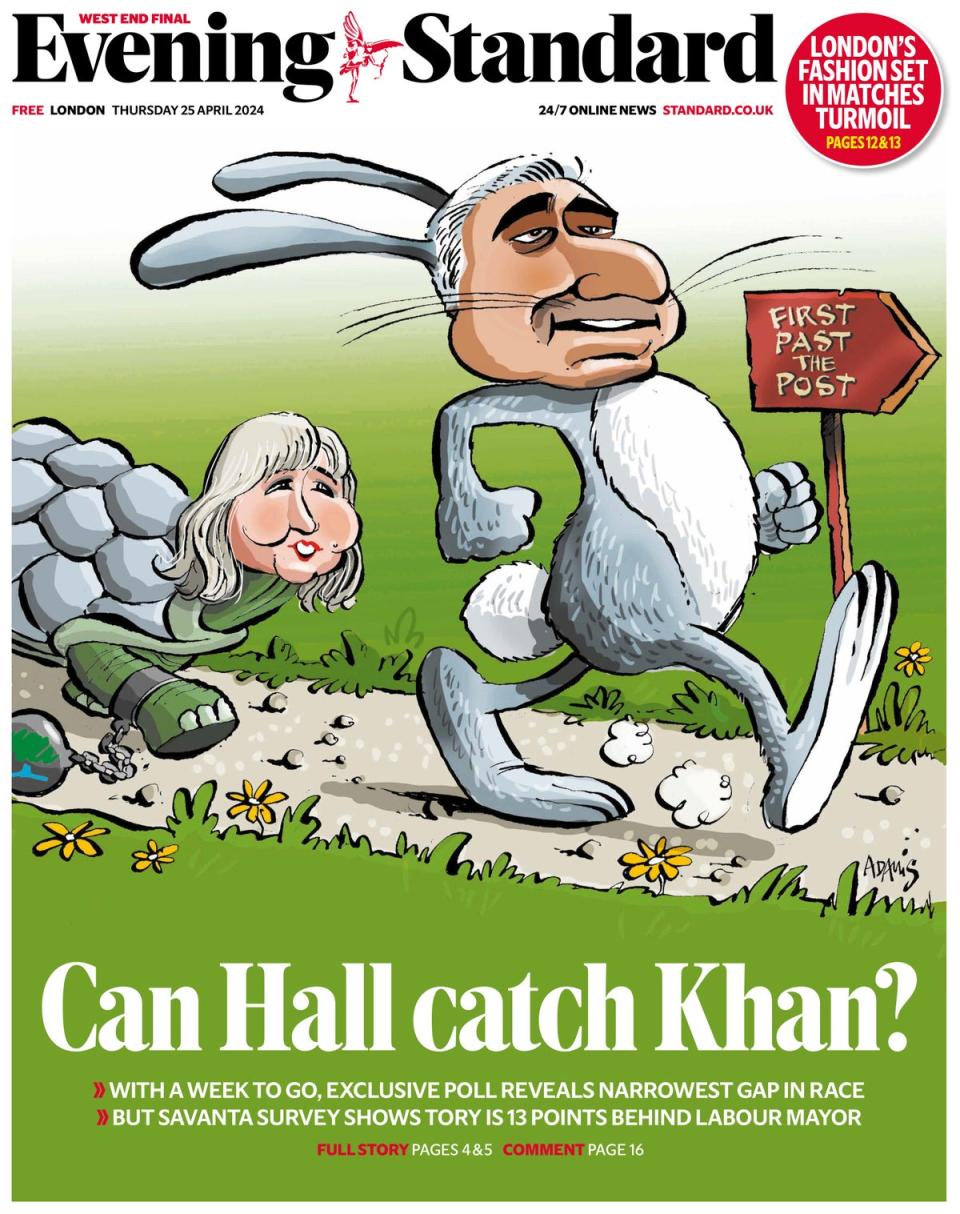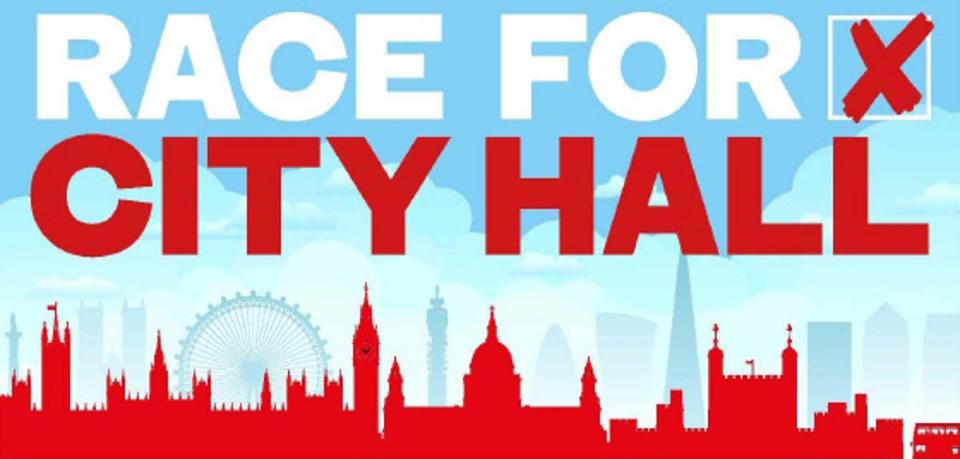London mayor election: Sadiq Khan's lead smallest over Susan Hall since campaigns started, new poll shows
- Oops!Something went wrong.Please try again later.
- Oops!Something went wrong.Please try again later.
London’s mayoral race was dramatically stirred up by a new poll showing the smallest lead for Sadiq Khan ahead of Susan Hall since their campaigns got under way.
With just a week to go to polling day, the Savanta survey for the Mile End Institute at Queen Mary University of London put the Labour mayor on 46 per cent, with his Tory challenger on 33 per cent, a lead of 13 points.
The findings suggest the final result may be far closer than earlier polls which put Mr Khan some 24 to 25 points ahead, and even sparked talk that Ms Hall may, possibly be able to pull off a surprise victory.
It is the second one to show a significantly smaller lead for the Labour candidate and pointed to some “key battlegrounds” possibly emerging in South and West London.
The fieldwork was carried out between April 8 and 17 so Ms Hall may have closed the gap further over the last week.
Dr Elizabeth Simon, postdoctoral researcher in British politics at Queen Mary University of London, said: “Looking at the geography of London mayoral vote intention paints an interesting picture.
“In our poll, we find that Mr Khan leads Ms Hall by a commanding margin in the boroughs in the North and East of the capital. His lead is 19 percentage points among those living in North London, and 17 percentage points among those living in East London.

“While the race appears to be much tighter in boroughs to the South and West of the capital, with Mr Khan leading by just eight percentage points among those living in South and West London.
“These South and West London boroughs can be seen as key ‘battlegrounds’ in the final lead-up to the mayoral contest.”
The latest poll uses a different methodology than those which found the bigger gap, including one by Savanta in March with a 24-point lead for Mr Khan, so no direct comparisons can be made.
Polling experts, though, believe that the early surveys may have picked up what was in many cases people’s voting intentions for the Westminster Parliament.
As the May 2 polling day has approached, with people getting election leafets from the various parties and postal votes, Londoners may have started to focus more on the choices to be the capital’s mayor.
A YouGov poll, also carried out into mid-April, put Mr Khan’s lead at 19 points, lower than many of the previous ones.

In April 2021, Tory mayoral candidate Shaun Bailey trailed Mr Khan by around 20 points and the gap in the final result was half this which is believed to have been partly down to “undecided” voters opting late to back the former and the low turnout.
The mayoral contest this time is being run using the first-past-the-post voting system which, given the switch from the previous method where people had two votes, has added to the uncertainty about the result, as has the use of voter photo ID.
The latest Savanta poll put Liberal Democrat Rob Blackie on nine per cent, the Green Party’s Zoe Garbett seven per cent, and Reform UK’s Howard Cox two per cent.
It also showed that Mr Khan is ahead in both inner London, normally a Labour stronghold, and outer London, which tends to more favour the Conservatives.
In inner London, he is on 49 per cent compared to Ms Hall’s 30 per cent, while in outer London the breakdown is 44 per cent to 35 per cent.
Ms Hall appears likely to outperform her party, given that 27 per cent of Londoners say they would vote Conservative if there was a general election tomorrow, giving her a six-point lead.
While for Mr Khan, it’s the opposite, with 52 per cent of Londoners intending to back Labour at a general election, six percentage points more than he recorded.
A majority (54 per cent) of 18 to 34-year-olds in the capital plan to support Mr Khan, as do 56 per cent of individuals living in privately-rented accommodation, and 61 per cent of ethnic minority Londoners.
Just over half (53 per cent) of Londoners aged 65 and over are intending to support Ms Hall.
When asked ‘which, if any, of the following are the most important issues to you in deciding how you will vote” in the mayoral contest, 40 per cent of Londoners picked inflation and the cost of living, 39 per cent the NHS, 38 per cent crime and 32 per cent housing.
* Savanta interviewed 1,034 adults online in London between April 8 and 17. Data are weighted. Full details can be found at https://www.qmul.ac.uk/mei/research-projects/polling-london/

